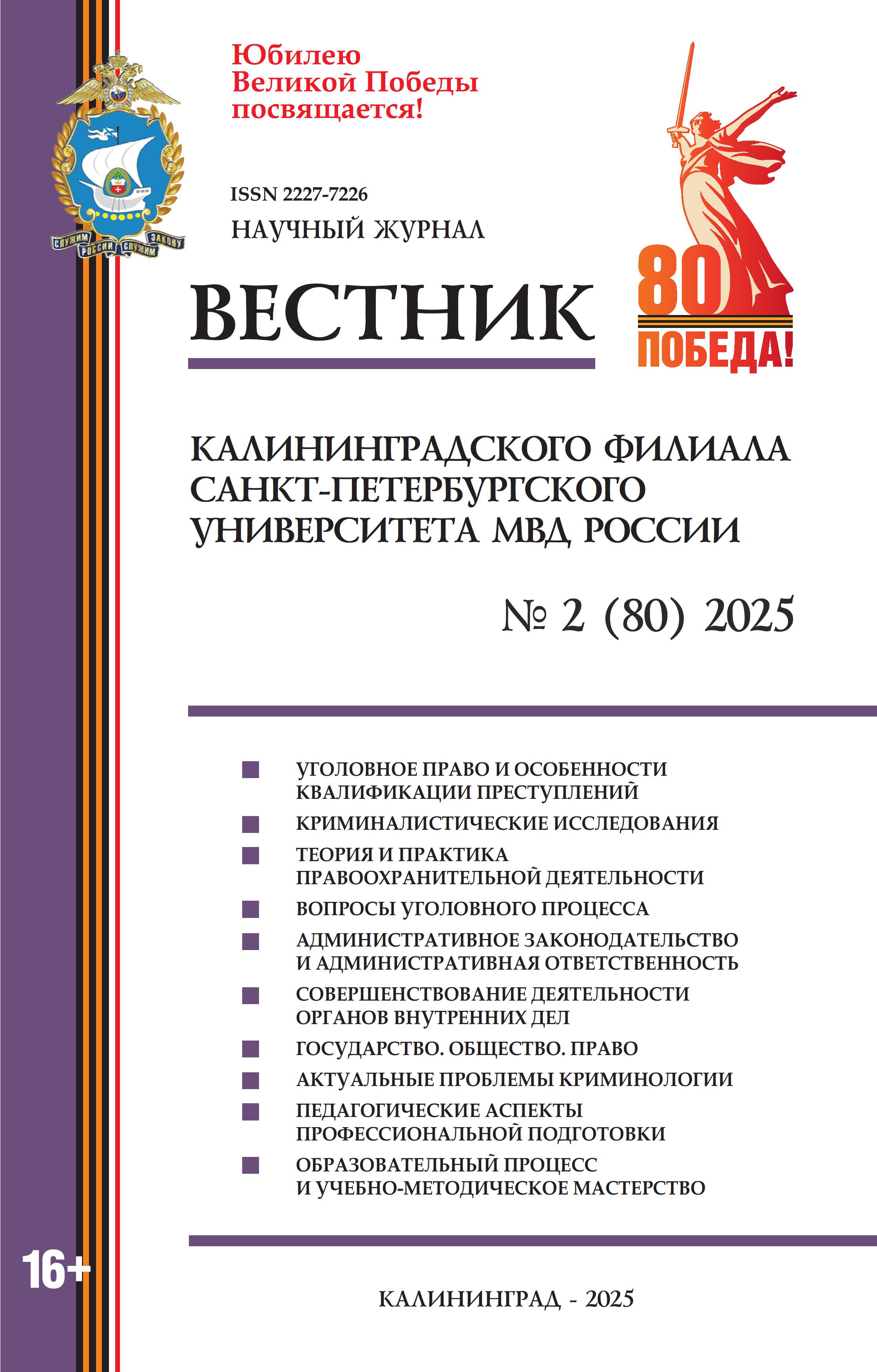employee from 01.01.2025 until now
Volgograd, Russian Federation
Introduction. The article discusses the confiscation of a vehicle under paragraph «d» of Part 1 of Article 104.1 of the Criminal Code of the Russian Federation in the event of a guilty verdict for committing a crime, liability for which is enshrined in Article 264.1 of the Criminal Code of the Russian Federation. The author provides an overview of the problems arising in judicial practice after amendments were made in 2023 to the Resolution of the Plenum of the Supreme Court of the Russian Federation «On Certain Issues Related to the Application of Confiscation of Property in Criminal Proceedings». In accordance with the updated version of the resolution, a vehicle is subject to confiscation if it belongs to the accused. The verdict must confirm with evidence that the accused is the owner of the vehicle, and that it was used in the commission of the crime. The previously existing legal uncertainty regarding the need for confiscation of vehicles has been eliminated; its application is now mandatory. An analysis of judicial practice has shown that courts often erroneously conclude that there are no grounds for confiscation of a vehicle; in addition, there is no common understanding of the possibility of applying confiscation as a criminal-law measure in relation to a vehicle in joint ownership. Methods. In the course of the study, the results of which are reflected in this article, the methods of analysis, synthesis, generalization, formal-legal, formal-logical and statistical methods were used. Results. It is concluded that the solution to the problem of confiscation of a vehicle in joint ownership is possible through the development of a mechanism for partial compensation of its cost
Confiscation, vehicle, criminal law measures, state of intoxication, joint property, arrest







